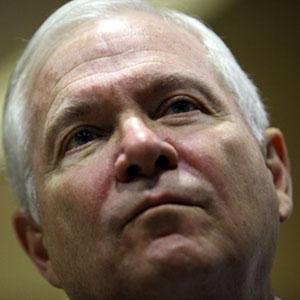 US Defense Secretary Robert Gates suggested Sunday that only a small portion of the U.S. force in Afghanistan will begin to return home next year, when an Obama administration deadline for a troop pullout goes into effect.
US Defense Secretary Robert Gates suggested Sunday that only a small portion of the U.S. force in Afghanistan will begin to return home next year, when an Obama administration deadline for a troop pullout goes into effect.
“Drawdowns early on will be of fairly limited numbers,” Gates said in an interview on ABC News’ “This Week.” “It will depend on the conditions on the ground.”
In calling for a surge of troops in the region, President Obama set July 2011 as the time when the Pentagon would begin to reduce forces, ostensibly with Afghanistan more secure from the threat of the Taliban.
The U.S. will have more than 100,000 troops in Afghanistan by the end of this summer. Gates said Sunday that the rate of the withdrawal will depend on the security conditions in the country. He said he expected the pace to increase as conditions improve.
“I think we need to reemphasize the message that we are not leaving Afghanistan in July of 2011. We are beginning a transition process,” Gates said.
Gates’ view was seemingly at odds with that of House Speaker Nancy Pelosi (D-Calif.), who watched last week as more than 100 Democrats in the House voted against a war-funding measure over frustration with a lack of progress in the nine-year conflict. Asked on “This Week” whether the drawdown of forces would be limited to a few thousand troops, Pelosi said: “Well, I hope it is more than that. I know it’s not going to be, ‘Turn out the lights and let’s all go home on one day.’ But I do think the American people expect it to be somewhere between that and a — a few thousand troops.”
And speaking on CNN’s “State of the Union,” Sen. Lindsey Graham (R-S.C.) said he could envision a scenario in which more troops were needed in the country.
“If we get the enemy on the run and they are having safe havens, let’s say down in Kandahar — that’s really where the center of gravity is — there is a lot of open terrain down there,” said Graham, a member of the Senate Armed Services Committee. “And if we begin to clear the city and our intelligence says they are going out in the hinterlands and they are regrouping, we may need more troops to keep them on the run.”
Gates also maintained Sunday on “Meet the Press” that last week’s leak of a trove of sensitive documents to the public had substantially harmed the war effort, but disagreed with some of the most controversial assertions made in the released materials.
The Defense secretary said he did not believe that Taliban forces in Afghanistan possess shoulder-fired Stinger missiles that can be used to down U.S. aircraft. “I don’t think so,” Gates said.
Gates also defended the United States’ relationship with Pakistan, disputing claims that intelligence elements in the country are actively aiding the Taliban. “I see a change in the strategic calculus in Pakistan,” Gates said.
He called the release of 76,000 classified documents by the website WikiLeaks morally wrong. “There’s … a moral culpability,” Gates said, “and that’s where I think WikiLeaks is guilty.”
Adm. Mike Mullen, the chairman of the Joint Chiefs of Staff, said that the U.S. was working to shield Afghans identified in the WikiLeaks documents from Taliban retribution.
Speaking on NBC’s “Meet the Press,” Mullen also indicated the U.S. has plan in place to attack Iran to prevent the country from obtaining nuclear weapons, but said he hoped it wouldn’t be needed. He cautioned that a strike could have “unintended consequences that are difficult to predict in what is an incredibly unstable part of the world.”
But Mullen also noted that allowing the country to develop a nuclear weapon was also unacceptable.
“Quite frankly, I am extremely concerned about both of those outcomes,” he said. LAT

Leave a Reply
You must be logged in to post a comment.